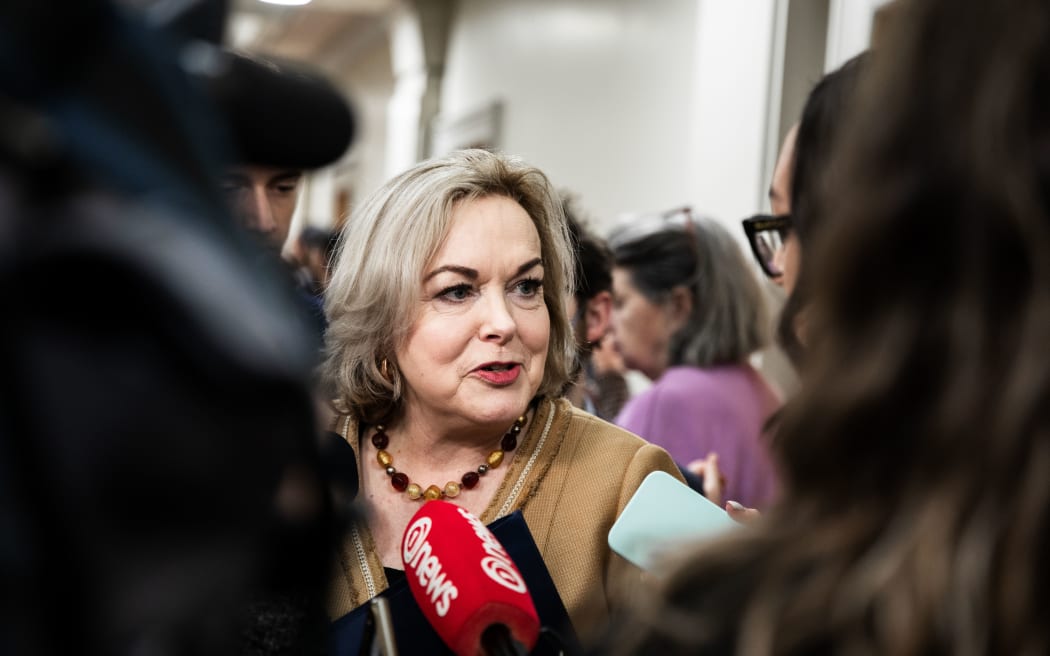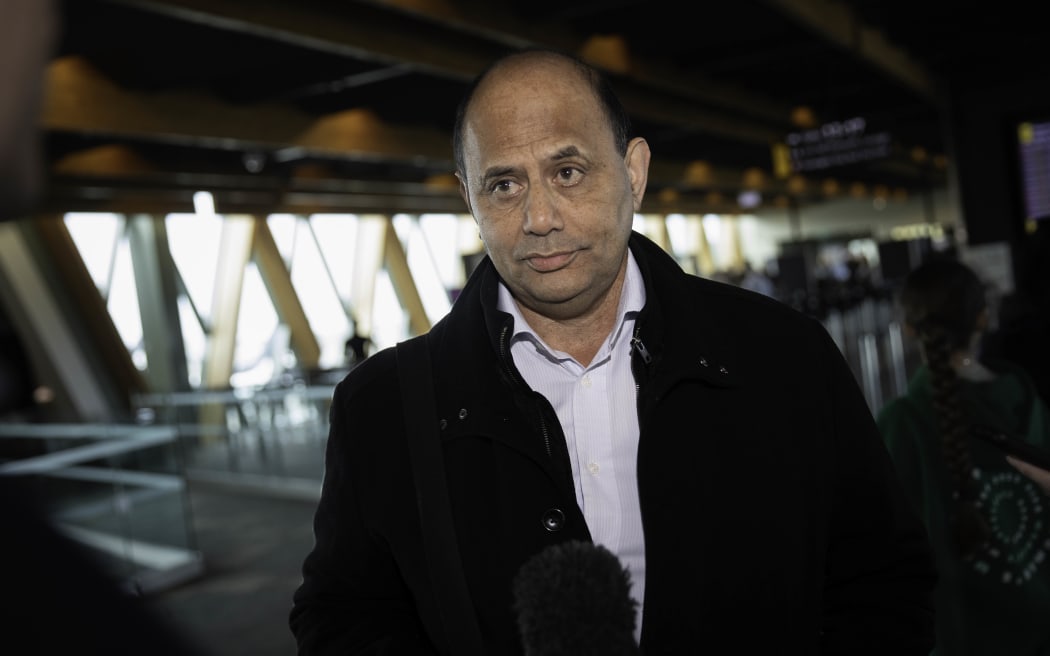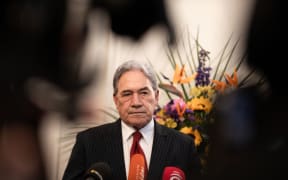
Attorney-General and former National Party leader Judith Collins. File photo Photo: RNZ / Samuel Rillstone
Attorney-General and former National Party leader Judith Collins says the incoming government will have a good relationship with media, after Winston Peters accused state-funded media organisations of a lack of independence from the previous government.
Speaking after his swearing in on Monday, Peters was asked how quickly he expected government departments to take action on removing te reo Māori from their names.
"Well, we'll see the speed at which TVNZ and RNZ - which are taxpayer owned - understand this new message. We'll see whether these people, both the media and journalists - are they independent? Well, isn't that fascinating, I've never seen evidence of that in the last three years," he said.
He then laughed, and said "you can't defend $55 million of bribery, cannot defend $55m of bribery. Get it very clear".
That last remark was a reference to the Public Interest Journalism Fund, a three-year $55m contestable fund for journalists initially set up to shore up public interest media during the Covid-19 pandemic, which was wound up in July.
Collins has previously questioned the funding in Parliament asking whether it was buying compliance.
Asked on Morning Report whether she still had any concerns and what she made of Peters' comments, Collins said "I've just been made the attorney general. I'm not right honourable Winston Peters' mother and nor am I his keeper. But I am someone who understands that that $55m fund, as you've rightly said, for many people in New Zealand, they do worry about that."
Collins said the media was an extremely important part of New Zealand's democracy and was "perfectly capable of standing up for itself, as I have seen myself over many years".
"But certainly I think also we need to be a little bit less precious. Yesterday was a big day for everybody and I'm sure that we're going to end up with a pretty good relationship with media."
The Public Interest Journalism Fund included funding for 219 jobs and 22 industry development projects. Political coverage was exempted from eligibility to benefit from it. The fund was administered by NZ On Air.
Willie Jackson, who became broadcasting minister in the Labour government two years after the fund was set up, defended the fund against Peters' characterisation of "bribery".

Labour's Willie Jackson was broadcasting minister in the previous government. File photo Photo: RNZ / Angus Dreaver
It was for media around the country, not just state-funded organisations, he told Morning Report.
"It was introduced during Covid because it was a disastrous time in terms of media and we were pressured by good people out there to say, 'hey you support financial institutions so how about supporting local media that's struggling'."
It was aimed at supporting New Zealand media to keep producing stories, he said and was "not just for RNZ and for TVNZ".
"What you saw was a great investment in support of media outlets, Māori, Pasifika, regional [outlets] ... Gisborne Herald, Otago Daily Times, Ashburton Guardian, they got support and an opportunity to rebuild, reset.
"I'm very proud of what we did."
He denied the then Labour government had any influence over the media as a result.
"The rules are very clear, we can't interfere, we can't intervene... You guys have to have your own independence."
RNZ's charter requires the broadcaster to be independent, including providing "reliable, independent, and freely accessible news and information".
While the organisation is funded by the government, by law no ministers of the Crown or person acting on their behalf may give direction to RNZ relating to programming, newsgathering or presentation, or standards, and cannot have staff removed.


